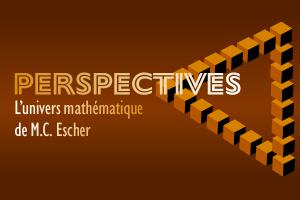Prof. Andreas Mueller annonce :
Gerald Feldman présentera la pédagogie SCALE-UP le 29 avril à l’unige
on MON 29/4 prof. Gerald Feldman (George Washington University, see *below) will visit our research group. he will give a talk at the physics colloquium at 12:30 (see attachment), then in the afternoon be ready to discuss the projects from everybody who likes to do so. please consider to present your project (or questions), in an informal way, and to gather input from this well-renowned physics educator.
COLLOQUE DE PHYSIQUE
Lundi 29 avril 2024, 12h30 École de Physique, Auditoire Stueckelberg
Prof. Gerald Feldman George Washington University, USA
« Establishing a Collaborative Student-Centered Learning Environment using the SCALE-UP Pedagogy»
The time-honored conventional lecture (« teaching by telling ») has been shown to be an ineffective mode of instruction for science classes. To enhance critical thinking skills and develop problem-solving abilities, collaborative group-learning environments have proven to be far more effective. In the SCALE-UP pedagogical approach, students sit at round tables in groups of three, where they carry out a variety of pencil/paper exercises (« ponderables ») using small whiteboards and perform hands-on activities such as demos and labs (« tangibles ») during class. Formal lecture is reduced to a minimum and the instructor serves more as a « coach » to facilitate the academic exercises that the students perform.
I will present an overview of the SCALE-UP concept and describe its implementation at George Washington University over the past 16 years. I will also discuss empirical data collected from assessments given to the SCALE-UP collaborative classes and the regular lecture classes at GWU in order to make a comparative study of the effectiveness of the two methodologies.
Finally, if time permits, I will give a brief summary of a pilot project at ETH Zürich in which we implemented a separate SCALE-UP section during the Spring 2017 semester. In this case, the active-learning approach was relatively new to the first-year students. We obtained comparative data between the collaborative class and a partner lecture class running in parallel, and we polled the students for feedback on their reactions to the collaborative group-learning environment.
Une collation en compagnie du conférencier sera offerte après le colloque.
https://home.gwu.edu/~feldman/
https://en.wikipedia.org/wiki/SCALE-UP
Storytelling for Understanding Biology at ETHZ 30 avril 15h par Zoom

I would like to attract your attention to the next Seasonal Webinar of the FEBS Education and Training Committee (see also attachment), freely accessible to everyone.New Date : May 13 (Monday), 15.00 Central European Time (e.g. Zurich)Samuel Tobler (at Chair for Learning Sciences and Higher Education, ETH Zurich)« The Power of Storytelling for Understanding Biology: Insights from Narrative Instruction in University Classrooms«Samuel did a fantastic thesis on this topic at the ETH, and discovered that narrative instruction (i.e. teaching with stories) can improve learning, notably if the academic background and prior knowledge of the students are properly considered. He continues to explore this subject as a postdoc and lecturer at the ETH (check out his web site).Join Zoom MeetingMeeting ID: 820 5296 3699Passcode: askJoin us for this new avenue in teaching and learning!And please promote the event in your departments, faculty, institute and so on.Best regards, Didier
Past-President of LS2 (ls2.ch)
Prof. Andreas Mueller attire l’attention de JTS sur cette publication
Il serait six fois moins cher de réduire le réchauffement climatique à +2°C que de subir les conséquences de l’inaction…
ABSTRACT
A primary justification of teaching science to all young people is to develop students to become « critical consumers » of science. This worthy goal, however, is hampered by a flawed premise that school science is sufficient to develop intellectual independence. In contrast, we start from the premise that we are all epistemically dependent on the expertise of others. Hence, any science education for all must develop the capabilities to become a « competent outsider » capable of making judgements not of the science itself, but whether the source is credible. Essential to developing such informed epistemic trust are: (1) a basic understanding of the social practices that enable the production of reliable knowledge; and (2) a familiarity with the major explanatory theories and styles of reasoning that guide the work of scientists. These elements provide a framework for the non-expert necessary to interpret and understand the work of scientists and the claims they make. We show how such an education would address three of the four primary aims of science education outlined by Rudolph (Citation2022). To achieve this goal a substantial reduction of existing standards to an essential, but fundamentally different, core is required, while returning significant autonomy to classroom professionals.
Perspectives – L’univers mathématique de M.C. Escher
http://agenda.unige.ch/events/view/38776

Perspectives – L’univers mathématique de M.C. Escher
Cette exposition propose une exploration des thèmes mathématiques récurrents dans l’œuvre de l’artiste néerlandais M.C. Escher (1898-1972) et dévoile une intrigante harmonie entre créativité artistique et rigueur mathématique.
Les architectures impossibles invitent à la découverte des dimensions et de la perspective tandis que la géométrie hyperbolique plonge le public dans un monde régi par des lois surprenantes. Les pavages, omniprésents chez M.C. Escher, se révèlent comme des outils créatifs, permettant de dessiner et de colorier mais aussi de découvrir des résultats de recherche très récents.
Du 19 février au 26 avril 2024
Du lundi au vendredi, de 7h30 à 19h
Dimanche, de 14h à 17h
Visites guidées:
Adultes: mardi 20 février, jeudi 29 février, jeudi 7 mars et mardi 19 mars, à 12h30
Familles: dimanche 10 mars, ateliers et visites guidées, de 14h à 17h
jeudi 14 mars, à 12h30
Lieu
Bâtiment: Bâtiment 66 bd Carl-Vogt Salle d’exposition de l’UNIGE
entrée libre
